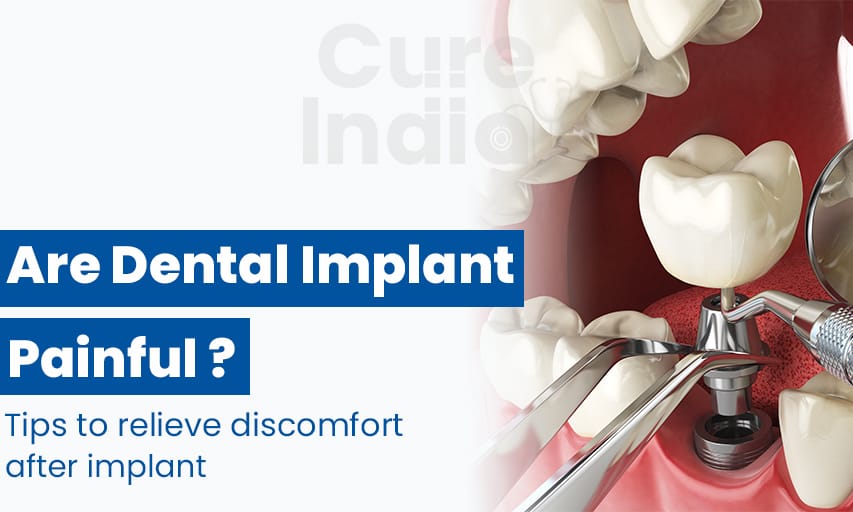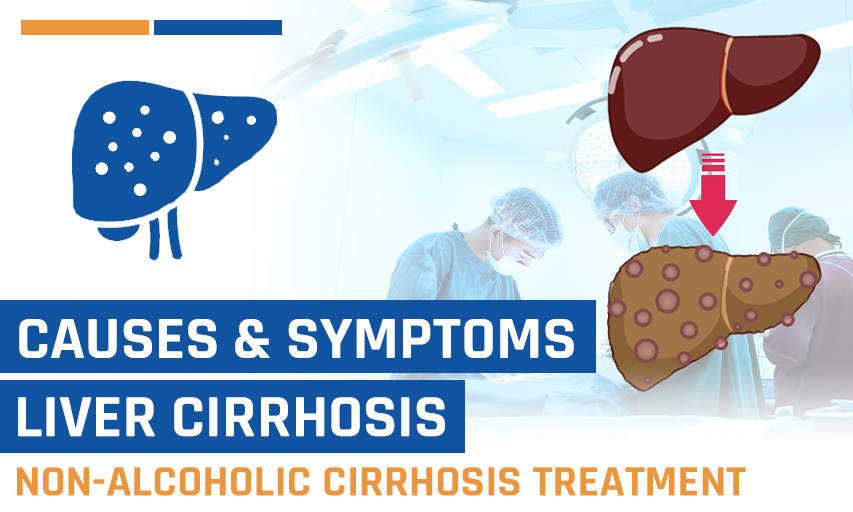Are Dental Implants Painful-Tips to relieve discomfort after implants
Are dental implants painful? This is a frequent query from patients. Going to the dentist can be unpleasant for some due to the widespread concern about oral pain. It's crucial to remember that effective dental care shouldn't hurt and that there are techniques to ease your anxiety before dental surgery. Dental implant surgery is one of the most effective and durable methods to restore missing teeth. However, as the procedure incorporates the installation of an artificial tooth root in the jawbone, mild discomfort may follow.
Many are apprehensive about getting dental implants installed because they fear it might hurt. However, dental implant treatments are typically painless, and getting dental implants has a lot of advantages. The implants might lessen future discomfort even if the process itself might be a bit uncomfortable.
What Types of Dental Implants Are There?
The human body is highly compatible with titanium, the metal used to create implants. Two prevalent implant kinds are listed below:
1) Endosteal
The jawbone receives these dental implants. It is the most sought-after dental implant type, mostly made of titanium and looks like small screws.
2) Subperiosteal
These dental implants are positioned on or above the jawbone but beneath the gum line. Patients who do not have enough healthy natural jawbones or who do not want to undergo a bone augmentation treatment may benefit from this type of implant.
Different Phases of a Dental Implant Procedure
Dental implants have three stages, which are as follows:
1. Implant placement
The patient may have surgery to have the implant inserted into the jaw, covered in the gum tissue, and given three to six months to osseointegrate into the jawbone.
2. Attaching the post
The gum tissue develops around the post (abutment) when the dentist fastens it to the implant. In some situations, the implant and post are put in place simultaneously. The combined implant and post act as an anchor for the replacement tooth, whether they are inserted simultaneously or not.
3. Crown Affixing
The dentist secures a distinctive crown to the implant post, which resembles a tooth.
What Happens During a Dental Implant Surgery?
Knowing what happens after a patient undergoes an implant is useful in understanding how unpleasant the implant procedure may be. A bone graft is routinely done to prepare the region after removing a patient's natural tooth and placing an implant. These grafts aid in properly integrating the implant with the bone by encouraging the creation of new bone, bolstering the jawbone.
The dentist drills a hole into the jawbone during dental implant surgery. A metal post is then inserted into the hole. The metal post serves as a substitute for a tooth root. It is necessary to give the post some time to osseointegrate to allow the patient's jawbone to grow through it. Even though it frequently takes months, this procedure is necessary for a stable and healthy implant. The dental crown's attachment point, the abutment, is typically not linked to the post until osseointegration is complete.
The dentist may occasionally need to perform a minor operation to insert the abutment. This simple procedure just affects the gums causing slight bleeding and swelling. Choose CureIndia for safe implants at an affordable full mouth dental implant cost.
When Do You Need Dental Implants?
The following are the cases when you might need a dental implant:
- After all other attempts to save the tooth have failed.
- You may currently wear uncomfortable dentures, and you're interested in having healthy chewing, speaking, and laughing functions.
- You would enjoy the improved quality of life that comes with implants.
- There is tooth damage. Therefore, more aesthetic operations might not be necessary.
- Dental implants are inserted to replace a lost or decaying tooth as a long-lasting alternative to dentures. When a patient needs a permanent remedy for reasons other than cosmetic, they are frequently used. Because implants can simulate a natural tooth, patients can resume speaking and eating as they did before losing their teeth.
- When veneers and composite bonding are ineffective because there is no framework to rebuild the tooth, implants are the ideal cosmetic fix for those gaps.
- An otherwise beautiful set of teeth may need implants after trauma because the impact left gaps. If the tooth is only slightly chipped, composite bonding may add to the existing tooth and produce a smooth repair.
- An implant is an ideal solution when a tooth is missing because it can create a sturdy foundation for the crown to be attached to.
Should You Go with a Dental Implant Procedure?
Conversation with your dentist is the first step if you've been considering getting dental implants. In-depth information on the procedure, what to anticipate, and aftercare guidelines can be obtained from your dentist. The office can also compare the costs of several replacement options for you. Full mouth dental implant is not for everyone. There may be some people who need further operations. Patients frequently require sinus lifts and bone transplants to enhance the quality of their jaw bones.
It may be important to have those additional operations to repair the bone condition of those who have worn dentures for a long time. Bone loss is a serious issue for people who wear dentures and is a common reason they are not good candidates for dental implants. During your initial consultation, your dentist will assess the condition of your jawbone, gums, and remaining teeth to decide whether dental implants are the best option for you. Even so, you aren't out of the running for dental implants if you aren't a good candidate. To prepare the area for an implant, your dentist could create a treatment plan incorporating the abovementioned treatments, bone grafts, and sinus lifts.
How Painful is the Implant Procedure?
With dental implant surgery, it is common for patients to ask, 'Are dental implants painful? The answer is- Mild trauma of the gum and jaw damage is common in dental implant surgery. There shouldn't be any pain during the procedure because the mouth will be anesthetized beforehand. However, once the numbness subsides, patients frequently experience minimal pain.
Many dental professionals recommend medications to help manage discomfort at the implant site. Post-operative pain may occasionally be mild enough to be managed with over-the-counter medications. A single implant is typically more comfortable than a procedure requiring several implants. Patients typically have pain for up to 10 days after the procedure, though it sometimes goes away sooner.
People must immediately call a dental professional if severe discomfort persists after 10 days. Long-lasting pain could indicate infection at the implant site. The dentist will need to act quickly to save the implant if this is the case.
How to Alleviate the Discomfort After Getting Dental Implants?
Here are a few classic techniques to minimize discomfort and accelerate healing following dental implants:
- After the procedure, follow the dentist's post-operation advice in the letter. As part of the instructions, you could be told to take painkillers like Advil or Tylenol as recommended and, if necessary, prophylactic antibiotics.
- Regularly rinsing with warm salt water may help eliminate germs and accelerate recovery.
- For the first 10 days, stay away from hot, spicy, and crunchy meals to prevent infection.
- The maintenance of good dental hygiene is always advised.
- Avoiding any infection due to damage by gently brushing close to the implant sites
- As indicated, applying cold compresses will aid with pain management.
- As recommended, keep your dental appointments.
The Bottom Line
No one likes to go through any kind of pain or discomfort during or after dental treatments. The concern of post-operative discomfort should not, however, deter those who are thinking about getting dental implants. When your mind asks, 'Are dental implants painful?', try imagining the magic afterward. Once the implant treatment is complete, the patient will have a stunningly restored smile because implants are intended to be permanent tooth replacements.




















Be First To Comment
Leave a Comment